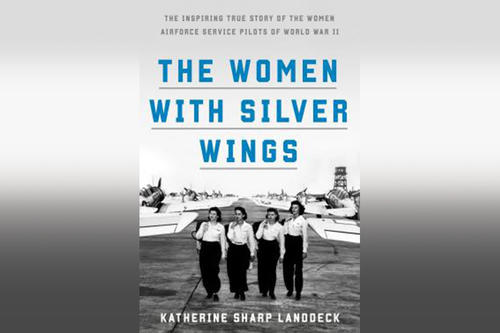Section Branding
Primary Content
Virtual Talk | Katherine Landdeck featuring GPB's Virginia Prescott

Join GPB's Virginia Prescott for a live discussion with author and associate professor, Katherine Landdeck, as she talks about her new book The Women with Silver Wings: The Inspiring Story of the Women Airforce Serve Pilots of World War II.
7 - 8 p.m.
The Women Airforce Service Pilots (WASP) gave women a chance to serve their country—and to prove that women aviators were just as skilled as men. While not authorized to serve in combat, the WASP helped train male pilots for service abroad and ferried bombers and pursuits across the country. Thirty-eight WASP would not survive the war. Eventually, congress would clip the women’s wings, the program was disbanded, the women sent home, but the bonds they’d forged never failed. Over the next few decades they came together to fight for recognition as the military veterans they were—and for their place in history.
Katherine Sharp Landdeck is an associate professor of history at Texas Woman’s University, the home of the WASP archives. A Guggenheim Fellow at the Smithsonian National Air and Space Museum and a graduate of the University of Tennessee, where she earned her Ph.D., Landdeck has received numerous awards for her work on the WASP and has appeared as an expert on NPR’s Morning Edition, PBS, and the History channel. Her work has been published in The Washington Post, The Atlantic, and HuffPost, as well as in numerous academic and aviation publications. Landdeck is a licensed pilot who flies whenever she can.
This is a free virtual talk, presented as part of the Atlanta History Center Author Talks program.